Алексей Толстой
THE GARIN DEATH RAY
THE GARIN DEATH RAY
Alexei Tolstoi
LIBRARY OF SOVIET LITERATURE
Foreign Languages Publishing House
Moscow
Translated from the Russian by George Hanna
Russian title: "Giperboloid Inzhenera Garina"
This story was written in 1926-27 and revised with the addition of newchapters in 1937.
The translation is based on 1955 Russian edition (State Publishing House "Hudozhestvennaya Literatura")
OCR by Biblioteka Russica_2
That season the entire Paris business world assembled for lunch at the Hotel Majestic. Men of all nations were to be met there, with the exception of the French. Business talks were conducted between courses and contracts were signed to the accompaniment of orchestral music, the popping of corks and the chattering of women.
A tall, grey-headed, clean-shaven man, a relic of France's heroic past, paced the priceless carpets of the hotel's magnificent hall with its gleaming plate-glass revolving doors. He was dressed in a loose-fitting, black frock-coat, silk stockings and patent-leather shoes with buckles, and wore a silver chain of office on his chest. This was the chief commissionaire, the personification of the company that operated the Majestic.
His rheumatic hands clasped behind his back, he came to a halt in front of the glass partition behind which the guests were lunching amidst palms and blossoming trees in green tubs. He looked for all the world like a biologist studying plant and insect life through the glass wall of an aquarium.
The women looked lovely, there was no denying it. The young ones were seductive in their youth, in the flash of their eyes—the Anglo-Saxon blue, the French dark violet, the South American black as night. The elder women wore toilets that served as a piquant sauce to their fading beauty.
As far as women were concerned all was well. The chief commissionaire, however, could not say the same about the men seated in the restaurant.
From what weed-bed had these fellows emerged in the post-war years—fat, short of stature, with beringed hairy fingers and flushed cheeks that defied the razor?
From morning to night they busied themselves with the consumption of all manner of drinks. Their hairy fingers spun money out of the air, money, money, money... In the majority of cases they came from America, that accursed country where people waded up to their knees in gold and were going to buy up the good old world at a bargain price.
A long, suave Rolls Royce with a mahogany-panelled body glided noiselessly up to the hotel entrance. The commissionaire, his chain rattling, hurried to the revolving doors.
The first to enter was a man of medium stature with a pale, sallow face, a short, trimmed black beard, and a fleshy nose with distended nostrils. He wore a long, sack-like coat and a bowler hat tilted over his eyes.
The man stood still, disdainfully awaiting his companion; she had stopped to talk to a young man who had darted out to meet their car from behind a column of the hotel portico. With a nod of her head she passed through the revolving doors. This was the famous Zoe Montrose, one of the smartest women in Paris. She wore a white woollen costume, the sleeves trimmed with black monkey fur from wrist to elbow. Her diminutive felt hat was the creation of the great Collot. Her movements were confident and negligent. She was tall, svelte, handsome, with a long neck, a somewhat large mouth and a nose very slightly turned-up. Her bluish-grey eyes gave the impression of both coldness and passion.
"Are we going to lunch, Rolling?" she asked the man in the bowler hat.
"Not yet. I'll talk to him before lunch."
Zoe Montrose smiled, condescendingly excusing the sharp tone in which he answered her. The young man who had spoken to Zoe at the car slipped through the revolving doors. His old, worn overcoat was unbuttoned and he carried a stick and soft felt hat in his hand. His excited face was sprinkled with freckles and the thin, stiff moustache looked as if it were glued in place. He apparently intended shaking hands but Rolling, keeping his in his overcoat pockets, spoke to him in still sharper tones.
"You are a quarter of an hour late, Semyonov."
"I was detained... On our business... I'm terribly sorry. ... Everything has been arranged... They agree... Tomorrow they can leave for Warsaw..."
"If you shout at the top of your voice like that you'll be thrown out of the hotel," said Rolling, staring at him with dull eyes that boded no good.
"Excuse me, I'll whisper... Everything is ready in Warsaw, passports, clothing, weapons, and so on. Early in April they will cross the frontier..."
"Mademoiselle Montrose and I are going to lunch now," said Rolling. "You will go to these gentlemen and tell them that I wish to see them today a little after four. And tell them that if they think they can double-cross me, I'll hand them over to the police..."
This conversation took place at the beginning of March in the year 192....
At dawn a rowing-boat pulled into the bank near the landing-stage of the rowing school on the River Krestovka in Leningrad.
Two men got out and there at the water's edge talked for a few minutes—actually only one of them spoke, brusquely and imperatively, while the other gazed at the swollen waters of the calm, dark river. The spring dawn broke through the blue of night away beyond the thickets on Krestovsky Island.
Then the two of them bent over the boat and the flame of a match lit up their faces. They lifted some bundles from the bottom and the one who had not spoken took them and disappeared into the forest while the one who had done the talking jumped into the boat, pushed off from the bank and rowed away with a creak of rowlocks. The silhouette of the rower passed through a streak of dawn-lighted water and disappeared into the shadow of the opposite bank. A tiny wave splashed against the landing-stage.
Tarashkin, stroke oar of the Spartak racing gig, was on duty that night at the club's boathouse. Tarashkin was young and it was spring, so he did not thoughtlessly waste the swift-flying hours of his life in sleep, but sat on the landing-stage over the dreamy water, his arms clasping his knees.
There was plenty to think about in the silence of the night. For two years in succession those damned Muscovites, who did not know even the smell of real water, had defeated the Leningrad Rowing School in the singles, fours, and eights. And that was humiliating.
A sportsman, however, knows that defeat leads to victory. That was one thing and then there was the fascination of the spring sunrise filled with the pungent odour of grass and wet wood that gave Tarashkin the confidence essential to successful training in preparation for the grand regatta in June.
Sitting on the landing-stage, Tarashkin had seen the boat draw up and, later, leave the river-bank. In general, Tarashkin had an imperturbable kind of mind, but on this occasion there was something that struck him as strange: the two men who came in the boat were as like each other as two peas in a pod. They were the same height, were dressed in similar wide overcoats and soft felt hats worn low on the forehead, and both had pointed beards.
But then, after all, it wasn't his headache, there was nothing in the laws of the Republic forbidding a man to go about with his double, by day or by night, on land or on water. Tarashkin would probably have forgotten all about the men with the pointed beards if it had not been for what occurred that same morning in a half-ruined, boarded-up country cottage standing in a birch grove near the rowing school.
Читать дальше
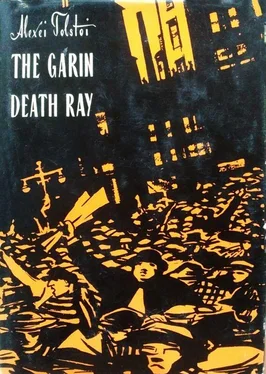
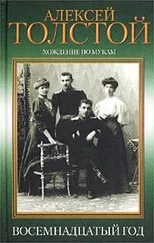

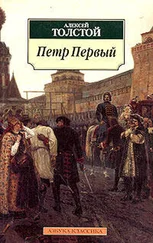
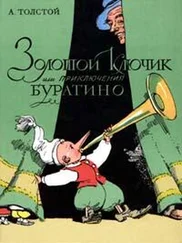
![Алексей Николаевич Толстой - Хождение по мукам [litres]](/books/26263/aleksej-nikolaevich-tolstoj-hozhdenie-po-mukam-litr-thumb.webp)
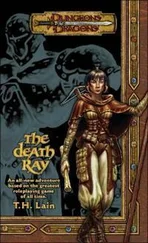

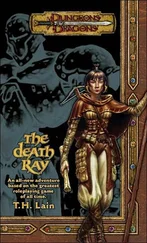


![Алексей Николаевич Толстой - Гиперболоид инженера Гарина. Аэлита [Художник Г. Зубковский]](/books/423486/aleksej-nikolaevich-tolstoj-giperboloid-inzhenera-ga-thumb.webp)
